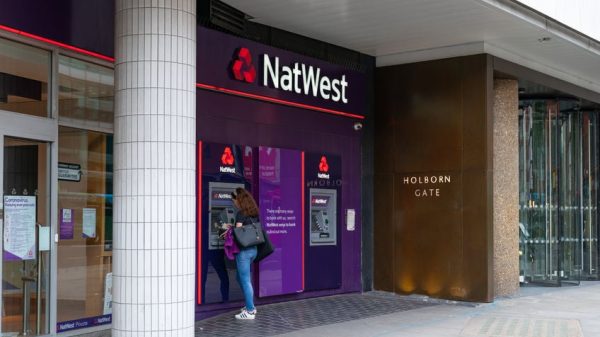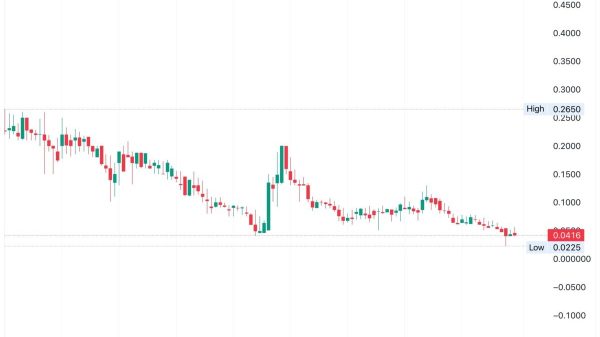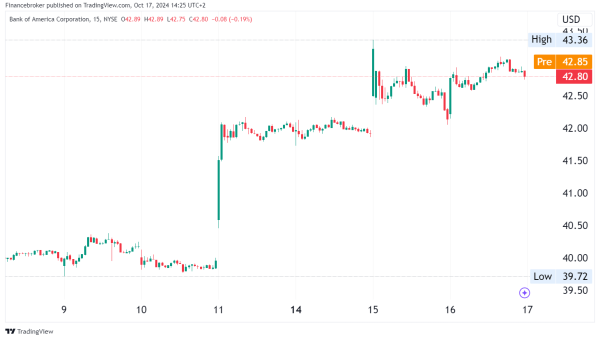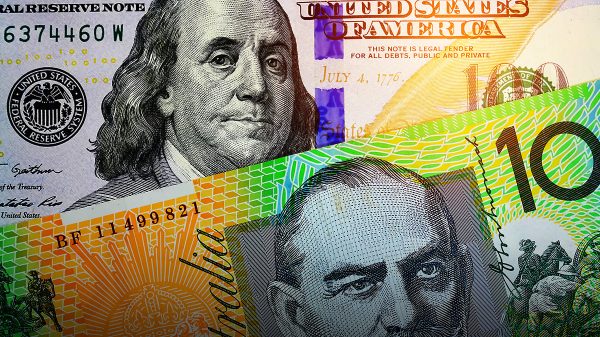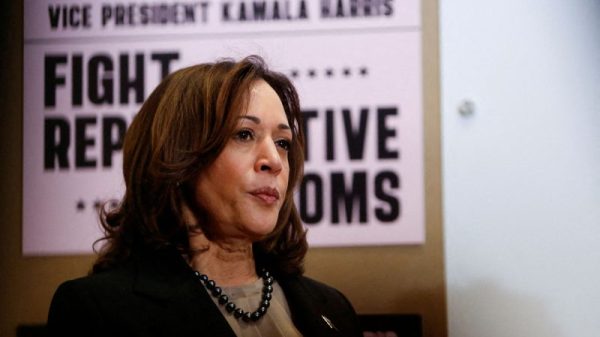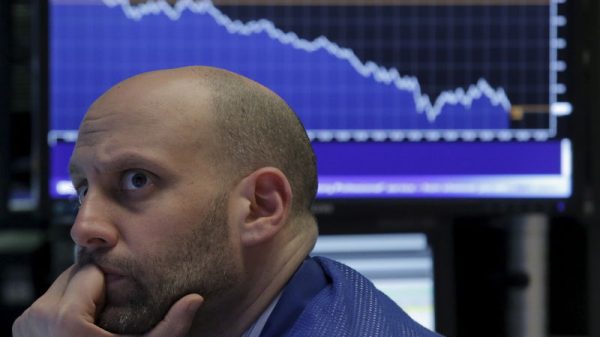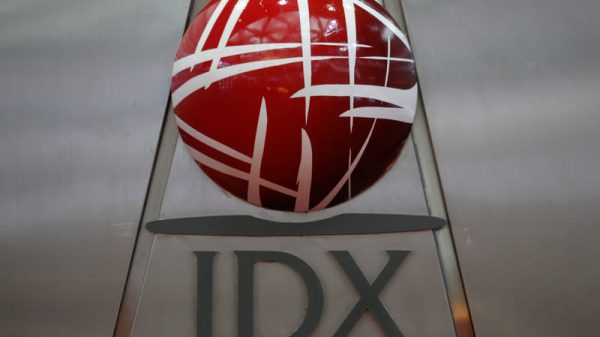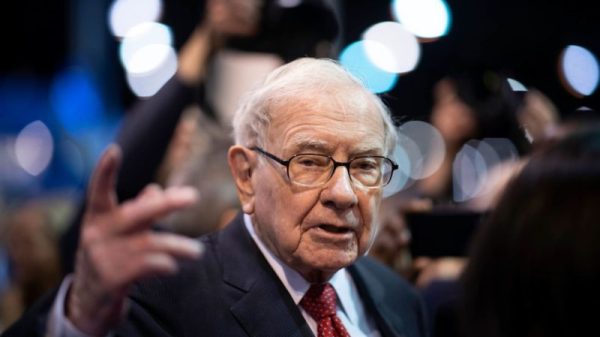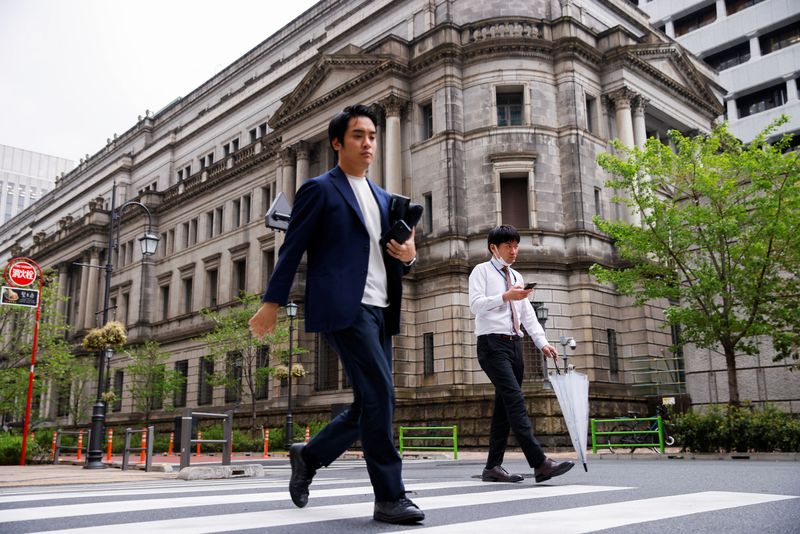
By Leika Kihara
WASHINGTON (Reuters) – The Bank of Japan is set to maintain ultra-low interest rates next week, and probably signal a less dovish policy outlook due to receding fears of U.S. recession – and the need to keep speculators from pushing down the yen too much.
Since ending a decade-long, radical stimulus programme in March, the BOJ has signaled its intention to keep raising interest rates from rock-bottom levels. But it was forced to water down the hawkish message and pledge to move slowly, or even pause, in raising rates after a hike in July was blamed for triggering a rout in markets.
While the BOJ appears in no rush to hike rates, any tilt back towards a less dovish stance would underscore its desire to leave itself wiggle room on the timing of the next move, analysts say.
It may also help prevent the yen, which has renewed its decline recently, from testing further lows and hurting already weak consumption by pushing up fuel and food import costs.
“As the yen is falling again, the BOJ will probably try to avoid sending a message that would appear too dovish,” said Ryutaro Kono, chief Japan economist at BNP Paribas (OTC:BNPQY).
At the two-day meeting ending on Oct. 31, the BOJ is widely expected to keep short-term interest rates steady at 0.25%.
In a quarterly report to be released after the meeting, the board is also seen making no major changes to its projection that inflation will move around 2% through early 2027.
Recent domestic data have mostly backed up the BOJ’s view that rising pay and prospects of sustained wage gains are underpinning consumption, and prodding more firms to raise prices not just for goods but services.
An intensifying labor shortage is also heightening expectations that companies will continue to hike pay next year, say three sources familiar with the BOJ’s thinking.
“Japan’s economy is on track for a recovery,” one of the sources said. “Prices will likely keep rising as many companies have yet to fully pass on rising costs,” another source said.
The BOJ may reflect such progress made on the wage and price front in the report, which would underscore its conviction that the prerequisite for more rate hikes is falling into place.
STRIKING RIGHT BALANCE
Markets, however, will be focusing more on the BOJ’s view on risks as Ueda has highlighted unstable markets and U.S. recession fears as key reasons to go slow in its rate-hike path.
After meeting his counterparts from major economies this week in Washington, Ueda offered a cautiously upbeat view on the outlook for the global economy.
“Optimism over the U.S. economic outlook appears to be broadening somewhat,” although more scrutiny was needed on whether it would be long-lasting, he said on Thursday.
The BOJ may also drop hints by modifying the report’s portion on future policy guidance. In the current report issued in July, the BOJ said it would continue to raise rates if economic and price conditions move in line with its forecast.
The board will likely debate whether additional language on risks or triggers for policy shifts should be included in the guidance, the sources said.
The BOJ ended negative rates in March and raised short-term rates to 0.25% in July on the view Japan was making progress towards sustainably achieving its 2% inflation target.
Ueda has repeatedly said the BOJ will keep raising rates if the economy moves in line with its forecast. But he has also said the bank was in no rush as inflation remained moderate.
A slim majority of economists polled by Reuters expect it to forgo a hike this year, though most expect one by March.
The IMF on Thursday welcomed the BOJ’s July rate hike and called on the central bank to raise rates at a gradual pace.
But political uncertainty and the yen’s renewed declines are complicating the BOJ’s communication. While it wants to tread cautiously to avoid upending markets, sounding too dovish could give speculators an excuse to sell off the currency – a dilemma Ueda acknowledged in Washington.
“When there’s huge uncertainty, you usually want to proceed cautiously and gradually. “But the problem here is if you proceed very, very gradually and create expectations that rates are going to stay at low levels for a very long time, this could lead to a huge build-up of speculative positions which could become problematic,” Ueda told an IMF panel on Wednesday.
“We need to strike the right balance.”



